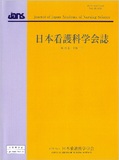Japanese
English
- 販売していません
- Abstract 文献概要
- 参考文献 Reference
- サイト内被引用 Cited by
要旨
目的:独居高齢者の低栄養状態に関連する食環境アクセシビリティについて,先行研究で得られている知見を文献検討から明らかにし,独居高齢者の食生活支援に対する地域看護実践について検討する資料を得ること.
方法:PubMed,CINAHL,医学中央雑誌Web版をデータベースとし,1999年から2018年の間に発表された文献を検索し,検討した.
結果:独居高齢者の栄養状態は低い傾向にあった.独居高齢者の低栄養状態に関連する食環境アクセシビリティの要素として,【低い経済状況】,【孤立感と孤食】,【機能低下】,【希薄な社会ネットワーク】,【食事に関する低いスキルと行動】,【食事を変える意欲の低さ】,【買い物に不便な居住状況】が挙げられた.
結論:独居高齢者の低栄養状態に関連する食環境アクセシビリティは多様であり,複雑に関連している.独居高齢者の食生活支援は,食環境アクセシビリティの要素における障害を検討し,それに対応して実践していくことが必要である.
Aim: The aim of this study was to clarify the findings of previous studies on food environmental accessibility related to the malnutrition state in older adults living alone to provide them with suitable dietary support in nursing practice.
Methods: Using the PubMed, CINAHL, and Igaku Chuo Zasshi Web version (the Japanese Medical Database) as databases, the literature published between 1999 and 2018 were searched and scrutinized.
Results: The nutritional state in older adults living alone tended to be poorer than that in those living with others. Food environmental accessibility related to the malnutrition state in older adults living alone was consisted of seven factors. They were “Low economic situation”, “Feeling of isolation and eating alone”, “Decreased functional ability”, “Weak social network”, “Low skills and behaviors in diet”, “Low willingness to change eating”, and “Inconvenient living conditions for shopping”.
Conclusion: The food environmental accessibility related to malnutrition state in older adults living alone is composed of diverse and complex factors. These results suggest that it is necessary to examine the difficulties among the factors of food environmental accessibility and provide support to older adults living alone in response to them.
Copyright © 2020, Japan Academy of Nursing Science. All rights reserved.


